5 Indonesian Islands You Should Visit That Aren't Bali
Bali might be the place on every traveller's lips, but who wants to always follow the crowds? Especially when some of Indonesia’s other islands have so much to offer.
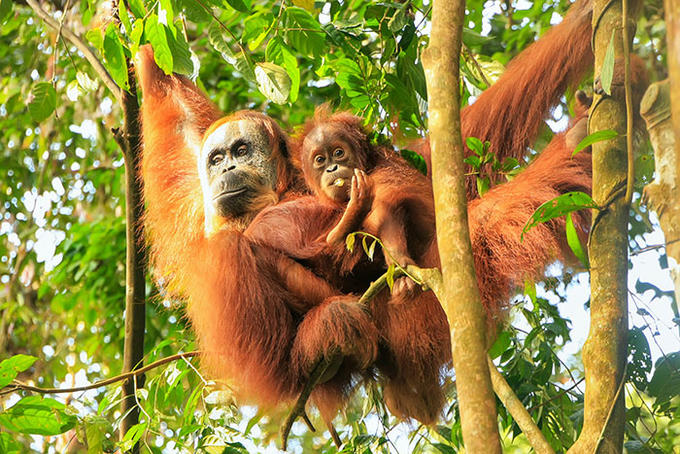
Sumatra: for orangutans and jungle trekking
There are only two places in the world where wild orangutans are still found swinging between the trees in their natural habitat; the rainforests of Borneo, and the northern jungles of Sumatra. In Sumatra, a selection of national parks are within the reach of Kualanamu Airport in Medan, though transfers are typically a bumpy affair, following winding roads that are more pothole than anything else.
Small communities, like Bukit Lawang, once thrived on exploiting the rainforest and the natural resources inside, from logging and rubber tapping to mining minerals, but now the steady stream of adventure-ready visitors has bolstered a tourism industry focused on sustainability. Locals now find employment as park rangers and trekking guides, taking groups to search for orangutans, baboons and macaques before sleeping in the jungle and waking up to the dawn chorus.
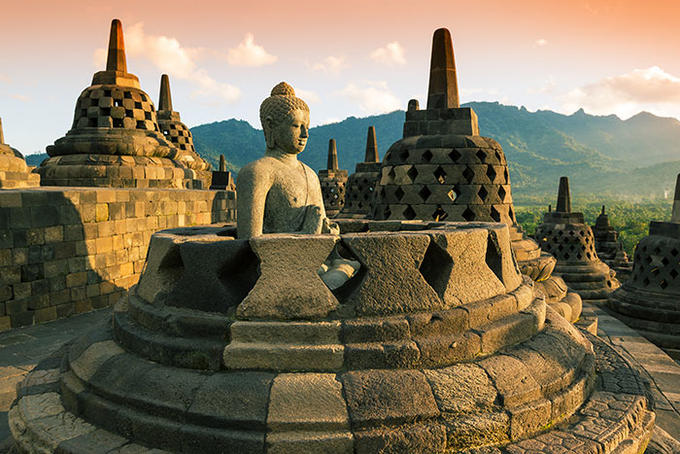
Java: for ancient temples and volcanoes
The long island of Java stretches from the southern tip of Sumatra to the western point of Bali, a slender link in the chain of Indonesian islands that trace a semicircle through the corner of the Indian Ocean. Home to the capital, Jakarta, it’s where many visitors to Indonesia start their journey. Though now predominantly Muslim, Java has age-old roots in Buddhism and Hinduism, so the island is littered with ancient temples. The most famous of which, Borobudur, is an impressive 9th-century temple complex with stone domes, stacked platforms and carved buddha figures.
Java is also blessed with an array of outstanding natural landscapes, thanks to its volcanic geology. Active volcanoes still grumble alongside their dormant predecessors, periodically chuffing out dense burps of ash cloud and emitting sulfurous odours. Wake up early, pull on all your layers and take a jeep up to watch the sun rise over Mount Bromo, a picture-perfect cone volcano in east Java, before climbing up to its rim to gaze down into the crater.
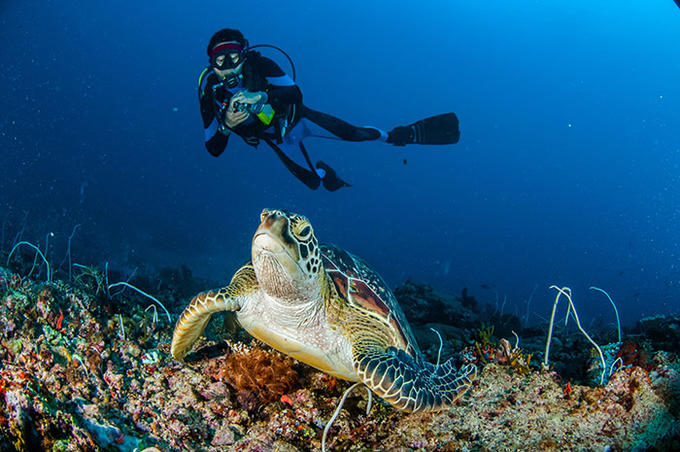
Gili Islands: for scuba diving
Some of the country’s best diving opportunities lie off some of its smallest islands. The Gili Islands, Gili Air, Gili Trawangan and Gili Meno, are a tiny archipelago sandwiched between Bali and Lombok. What they lack in size, they make up for in character. No cars patrol the laid-back islands, the fastest mode of transport is your own two feet, and an array of dive schools sit nestled in the treeline just back from the coast.
Whether you’re keen to earn your PADI qualification or you’re already a pro when it comes to strapping on an air tank and getting beneath the waves, the diving here is world-class. Shallow coral reefs fringe the islands, dancing with fish of all shapes, sizes and colours, hiding crustaceans and providing a nursery habitat for reef sharks. Whale sharks and manta rays also migrate through these warm waters.
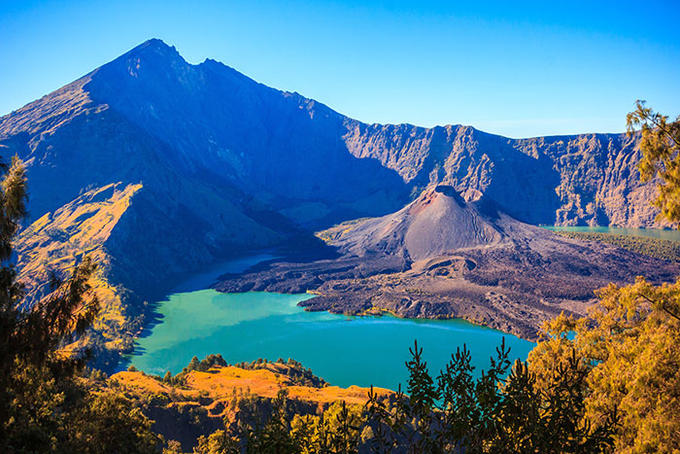
Lombok: to climb Mount Rinjani
Bali’s eastern island neighbour might not pull in the crowds in quite the same way, but Lombok still sees its fair share of visitors thanks to its landscapes’ potential for adventure. Many come for the surfing, with picture-perfect beaches and world-class swells off the south coast a key draw, but plenty stay to head inland.
The island vistas are defined by dramatic scenery – Lombok’s horizons feature volcanic peaks, descending to craters cradling emerald lakes and steaming thermal vents.
Indonesia’s second-largest volcano, the still-active Mount Rinjani, reaches 3,726m and is a hiker’s paradise, with the trek to the summit winding through jungle trails and ascending to spectacular viewpoints. But perhaps Lombok’s greatest asset is that all this comes without the party scenes found on Bali. On Lombok, visitors can get back to nature uninterrupted.
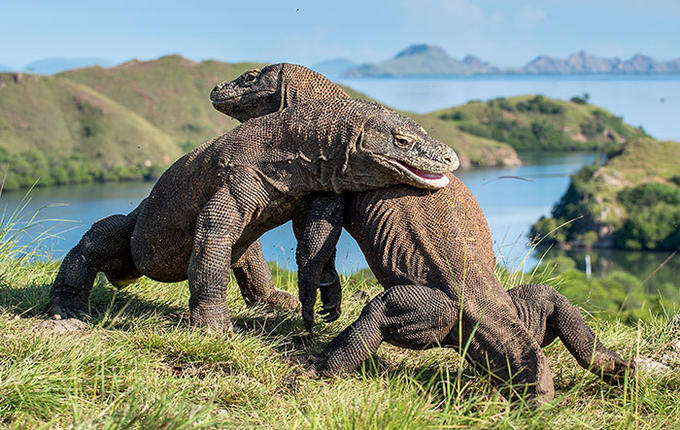
Komodo: for the Komodo dragons
Komodo is one of three islands that make up the Komodo National Park, where the fearsome Komodo dragon – the largest lizard on earth, reaching up to three metres in length – sits at the top of the food chain. In the early 20th century explorers made expeditions to Komodo to study the rumoured fire-breathing beasts, but now visitors come to this more remote patch of Indonesia to marvel at the definitely-not-fire-breathing monitor lizards in their natural environment.
Hiking through the island – with experienced guides of course – it’s never long before you come face-to-face with your first dragon. It’s worth spending a night or two on the archipelago: red corals offshore give the eastern coast of Komodo striking pink beaches and, much like its fellow island neighbours, Komodo also offers divers plenty to discover beneath the waves.
Plan your trip to Indonesia with our range of Indonesia holidays – from tailor-made Journeys to lazy beach Escapes.




